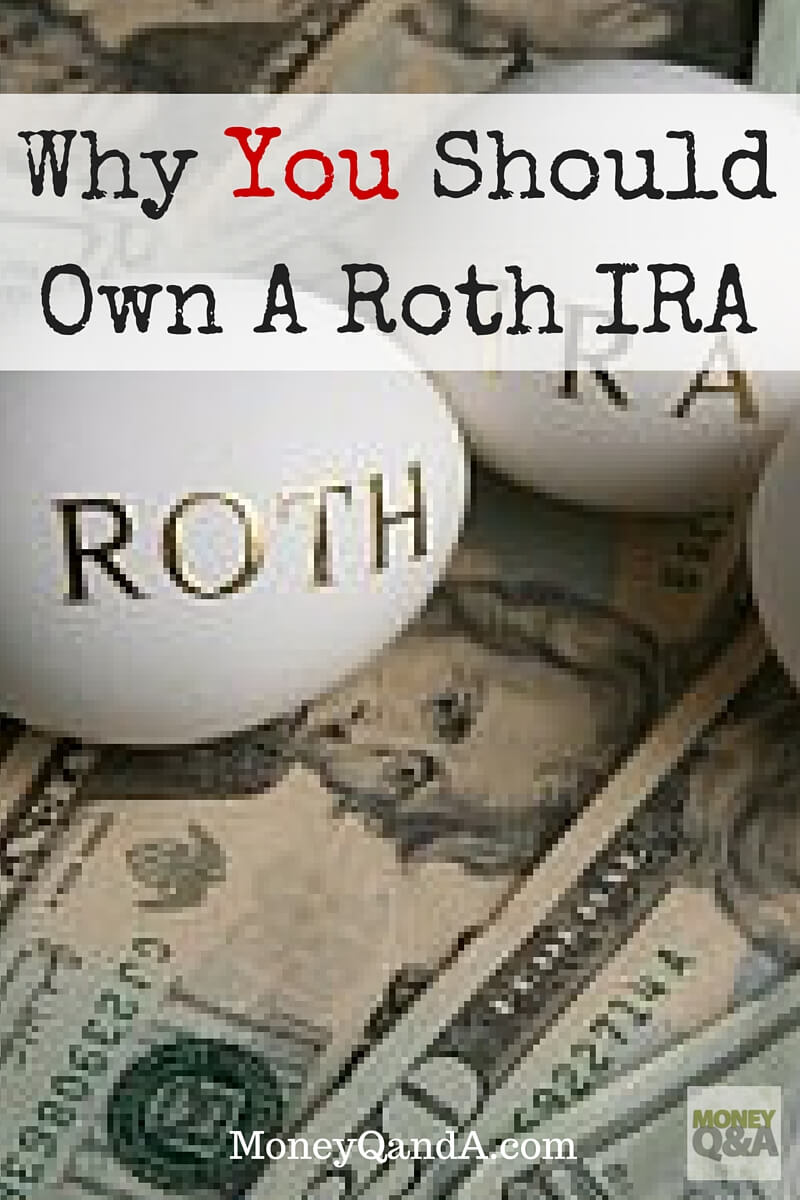
What is a Roth IRA? A Roth IRA is an individual retirement account (IRA) that allows people to invest after-tax income up to a specified amount each year and then withdraw the earnings tax-free after age 59½ are tax-free. There are a lot of rules and stipulations to Roths, but they’re a great investment!
Here is a quick list of my favorite reasons why you should own a Roth IRA. Of course, there are many more, but here are the top 10 reasons to own a Roth IRA.
Top Ten Reasons to Own a Roth IRA
1. Tax-free withdrawal of earnings in retirement
This is by far the largest benefit of a Roth IRA. Once you reach 59 ½ years old, you can begin withdrawing your earnings from your Roth accounts tax-free.
2. No minimum or maximum age limits to contribute
As long as you have an earned income and are within the income limits, you can contribute to an IRA. This is a great deal. If your children have a job like a paper route, babysitting, or mowing lawns, they can open a Roth IRA. Starting while still in middle or high school can add millions of dollars to their retirement nest egg.
3. No mandatory minimum withdrawals
Unlike Traditional IRA and 401k retirement plans, there are no required mandatory distributions at a certain age for a Roth. Roth IRA investors can wait to start withdrawing money from their accounts, and ultimately they do not even have to withdraw any money if they do not want to or need to.
4. Early withdrawal for first-time home buyers
You can withdrawal earnings from your Roth IRA without a penalty for a first-time home purchase.
5. Early withdrawal for education expenses
You can withdrawal earnings from your Roth IRA without a penalty for valid educational expenses.
6. Can withdrawal penalty free if disabled
If you become permanently disabled, you are allowed to withdrawal earnings from your Roth IRA without a penalty in most cases. Be sure to check with your investment company and a tax advisor before you do so though to be sure.
7. 16 months to contribute
You can contribute for the previous year (2011) all the way up to the tax day of next year (April 17th, 2012). Finishing my contributions to my Roth IRA is one of my favorite things to do with my income tax refund.
8. Catch-up contributions
If you are over the age of 50, you can add an extra $1,000 as a catch-up contribution to your Roth for a total contribution of $6,000 per year per person.
9. Tax-free withdrawals any time of your contributions
While it is not the best idea to withdrawal money from your Roth IRA before retirement, it is a safety net available for investors. Your contributions to one are your money to do with as you see fit which also includes withdrawing it if needed without penalties or having to pay taxes on it again.
This, of course, is not recommended by financial planners, and it is not what a Roth IRA was designed for. It is a retirement plan and not a savings account or emergency fund.
10. Can pass a Roth onto heirs
A great benefit of a Roth is that you can leave them to your heirs by completing a beneficiary designation form with your investment company. Your spouse can keep it for as long as he or she lives, and other non-spousal heirs can keep your IRA for up to five years before distributing the assets.
What is a Roth IRA? It’s an incredible investment tool for retirement. If you haven’t looked at starting one, you definitely need to check it out for your retirement investing. Open a No-Fee Motif IRA and get $150 with a qualifying transfer.
Are there any other great reasons that I missed? I know that there are tons of great reasons out there to own a Roth IRA. I’d love to hear your thoughts in the comment section.


Please explain #7 a little more. How are you able to make a contribution to your Roth for tax year 2011 after you’ve already filed you 2011 taxes? I’m assuming you don’t have to report your contributions on your income taxes?
You’re correct. You do not have to report your Roth IRA contributions on your taxes unless you are a low income earner and are collecting the Savers Credit, formally known as the Retirement Savings Contributions Credit (tax credit). http://www.irs.gov/newsroom/article/0,,id=107686,00.html
If you can claim the Savers Credit and have already filed your 2011 taxes, you can always file an amendment to your taxes. But, Roth IRAs allow you to continue to contribute your $5,000 or $6,000 in your case for last year all the up to tax deadline day (April 17th because of the weekend this year.)
I also look at it like money I can’t touch. I mean I know I can touch it but it helps to know that it is growing and I am not touching it.
It’s kind of like a built in savings account that is harder to touch than simply going to the teller counter with a withdrawal slip.
I am a huge advocate of the Roth. My husband actually has a Roth 401(k) – I didn’t think they actually existed, but his employer puts a certain percentage of my husband’s salary into a separate IRA. It’s immediate diversification!
I have a Roth IRA, now I just need to actually contribute to it!
I’m a big promoter of Roth IRA’s. This is a great and easy presentation of the benefits. By their own rite, each of them is beneficial. I personally got into a Roth on the principle alone that if I ever needed the money back I could get it (after 5 years) (but I probably won’t ever touch it).
You did leave out one of my favorite reasons to pick the Roth over the Traditional: You have a higher effective savings rate! I have a post of my own where I work out the math:
http://www.mymoneydesign.com/personal-finance-2/retirement/traditional-vs-roth-ira-%e2%80%93-part-3-why-i-prefer-a-roth-ira/
Ah Yes, the ROTH. If only I had started earlier! I wasn’t aware of #7 either, I thought you had to contribute before you file taxes.
You have up to April of the next year to contribute for last year.
Hank, #10 – So long as the Roth IRA has a beneficiary listed, the beneficiary can take RMDs over their lifetime. The 5 year distribution is if there is No beneficiary listed and the IRA passes through a will.
Thanks for the clarification, Joe. I appreciate the info. Good to know.
Nice list on reasons to own a Roth IRA. I actually converted some of my traditional IRA to a Roth with the intent of buying real estate. It is not an easy process but with rental income and capital gains tax free I hope to diversify retirement funds into real estate.
I have been trying to find the best Roth for me. I’m on Baby Step 3 currently, so I’m looking ahead. Where is the best place to start?
Nicole,
I like Stash Invest and Betterment. Both are great options for people looking to just start out. Here are links to both…
Betterment
Stash Invest
Hi There! Does Dave recommend 15% per individual per year for retirement investment or per couple? In other words, should my husband and I each be investing 15% into a Roth IRA each year, just one IRA as a couple in one person’s name or 7.5% per person? Or is that more of a personal choice in how each family handles finances? I was working but am currently staying home with our young son. Thank you!
Great question! It’s 15% of the total income…so, that’s really 15% of what you make and 15% of what your husband would make. NOT 7.5% per person. As to individual or joint Traditional and Roth IRAs, that’s definitely a personal choice. My wife and I have a joint IRA, and we each also have individual ones in our own name as well.